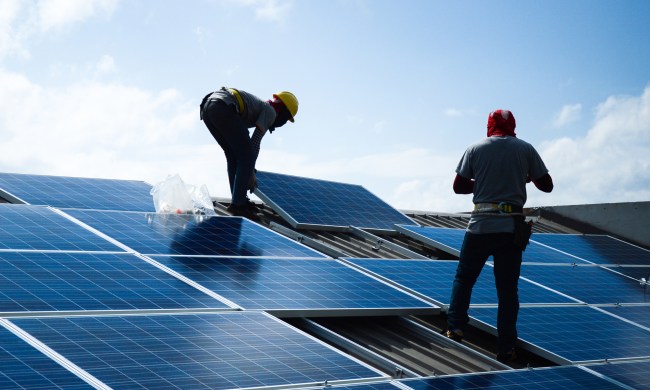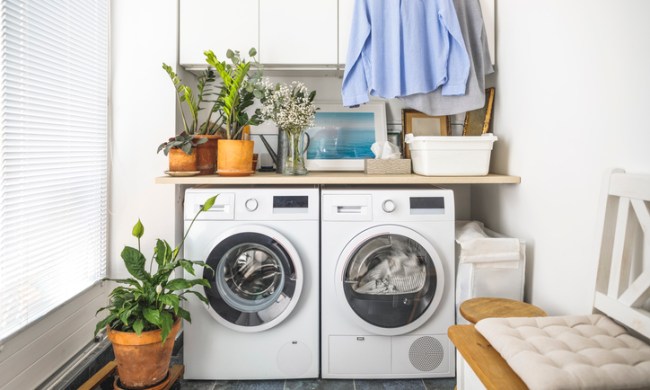Mortgage rates are on the rise, and it seems as though the historic lows we saw in 2020 appear to be no more. But it’s not too late to lock in a lower monthly payment for potentially the next decade if you move quickly.
Average mortgage rates have been lowering over the past few weeks, but according to Zillow economist Matthew Speakman told the Washington Post that’s unlikely to be the trend for long. If you’re considering refinancing, it’s time to move fast. We’re going to take you through all the basics of mortgage refinancing so you can make a well-informed decision on refinancing your mortgage before rates start to climb again.

Get familiar with basic refinancing terminology
Since mortgage rates are still low but expected to increase soon, you will want to figure out whether you want to refinance your mortgage quickly. It’s a good idea to familiarize yourself with some of the common terms used in the world of refinancing so you can navigate your options quickly and confidently.
What does it mean to refinance your mortgage?
Refinancing means applying for a new loan and using that loan to pay off your current loan. You’ll need to qualify for the new loan and even pay closing costs for it. The benefit of refinancing is that you can take advantage of lower interest rates. You can get a lower interest rate if your financial situation has improved since the start of your original loan or if the market’s interest rates are trending downward.
Interest rate vs. APR
Your interest rate refers to the percentage your lender is charging on the money you borrowed. Your annual percentage rate refers to your overall annual cost as the borrower, including interest and fees like closing costs and mortgage insurance.
Fixed-rate vs. adjustable-rate mortgage (ARM)
Most lengthy mortgages have fixed interest rates which means that the rate’s percentage will not change throughout the life of the loan. However, an adjustable-rate mortgage (ARM) means that the interest rate will eventually fluctuate with the market. The benefit of an ARM is that if the market’s interest rates fall, so does your interest rate.
Closing costs
Closing costs refer to fees that are due at the time of closing. These often include costs for mortgage insurance, homeowners insurance, taxes, and appraisal costs.
Equity
When the amount of your loan is less than the value of your home, the difference is referred to as equity. You can sometimes take cash out against your equity and use it for home repairs, renovations, or even paying off other debt.
Private mortgage insurance (PMI)
Private mortgage insurance is required on any home loan that leaves less than 20% equity on the home. PMI protects the lender by reducing the risk of loaning you the money for your home. Once you pay down your loan enough that your equity is above 20%, you can drop your PMI.

Is it the right time for you to refinance?
This may be a great time in general for refinancing, given the still-low average mortgage rates, but you’ll need to determine if this is the right time for your own financial situation. Even if the market rates are generally low, some elements will make it unwise to refinance right now.
Your current loan
If you still have many years left on your mortgage, a lower interest rate will benefit you in the long run. If, however, you only have a handful of years left, a refinance may not benefit you. Since refinancing means you’re taking out a new loan, your payments for the first several years will be higher since they will include your interest payments and fees.
The current value of your home
When refinancing, if your home has significantly increased in value, this will automatically impact your equity, give you a lower interest rate, and possibly allow you to avoid PMI on your refinanced loan. On the other hand, if your home’s value has diminished, this may cause your interest rate to go up.
How much debt and income you have
If you’ve recently taken out a new car loan, incurred a lot of credit card debt, or experienced a drop in annual income, now may not be a great time for you to refinance your mortgage. These are all considerations when qualifying you for your new loan and interest rate. High debt and reduced income result in a higher interest rate.
Your credit score
Not surprisingly, your credit score impacts what kind of interest rate you’ll get when refinancing. If your credit score has gone up significantly since you first took out your mortgage, now is probably a great time to refinance. On the other hand, if you’ve had some bad hits to your credit recently, it’s a good idea to hold off and work on increasing your score for a while.
Mortgage rates are expected to start climbing soon, and while it can be tempting, you shouldn’t jump into refinancing your mortgage without considering your current financial situation. Refinancing should be a tool that you use to save on your overall mortgage as well as your monthly payments, so be sure a refinance is beneficial for your pocketbook overall. If it’s not, keep watching market trends and prepare yourself for refinancing when the next downward trend emerges.



